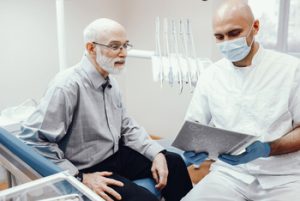Tooth pain, ranging from mild annoyance to excruciating pain, is more prevalent than one might think. From tooth decay and gum disease to a simple crack from biting into something hard, the causes are numerous. Often, the affected tooth sends signals of discomfort, ranging from a dull ache to severe toothache pain that disrupts daily activities. Such unbearable tooth pain can result from several factors, including undone dental fillings, abscessed teeth, or even gum disease. The pain may intensify when consuming hot or cold foods, sugary foods, or when an infected tooth is exposed to air.
While a cold compress or clove oil might provide temporary relief from toothache pain, it’s essential to pinpoint the root cause. It could result from poor oral hygiene, leading to dental decay, a severe abscess demanding immediate dental treatment, or even teeth grinding at night.
Tooth sensitivity, particularly when consuming cold foods or drinks, might hint at gum recession or bacterial infection. And while some natural remedies, like warm salt water rinses, can alleviate symptoms momentarily, nothing replaces professional dental care. It’s crucial to see a dentist regularly, particularly when facing unbearable toothache pain, as they’ll be best equipped to provide tooth pain relief and recommend the appropriate course of action, whether it be root canals, tooth extractions, or more advanced toothache treatments.
The significance of dental pain should be considered. Ignoring it can lead to more severe complications, with wisdom teeth issues, sinus infections, or bacterial infections threatening oral health. In the worst cases, neglecting to address the pain promptly could result in tooth loss.
Therefore, if you ever wonder, “Unbearable tooth pain – what to do?” Remember this anecdote and understand that seeking professional help is the first step towards relief.
The Causes of Tooth Pain
When one experiences unbearable tooth pain, it’s not just an inconvenience; it can be a sign of deeper dental issues that, if ignored, can escalate. Recognising the root causes can help guide your next steps, especially when you need tooth pain relief. Here are some of the most common culprits:
Dental Cavities and Tooth Decay
Due to consuming sugary foods or poor oral hygiene, tooth decay can result in holes or cavities in the teeth. These cavities expose the sensitive inner parts of the tooth to external elements, causing toothache pain.
Gum Disease
Gums are the support system for our teeth. Gum disease, often spurred by bacterial infections, can lead to inflamed and bleeding gums. If left untreated, it might cause the gums to recede, exposing the tooth’s roots and thus causing pain.
Damaged Fillings or Dental Sealants
Over time, dental fillings or sealants that protect deep crevices in your teeth might get damaged, exposing the sensitive parts of the tooth and causing discomfort.
Teeth Grinding or Clenching
Some people unconsciously grind or clench their teeth, especially during sleep. This repeated pressure can cause tooth fractures or soreness, leading to dental pain.
Sinus Infections
Sometimes, tooth pain might not result from dental problems but from sinus infections. The pressure from the sinuses can cause pain in the upper teeth, often mistaken for a toothache.
Wisdom Teeth Issues or Impacted Teeth
Wisdom teeth, or third molars, often emerge during late teens or early adulthood. If there is insufficient space for them to grow, they can become impacted, leading to swelling, pain, and even bacterial infections.
Temperature Sensitivities
Consuming cold foods or drinks can trigger tooth sensitivity, especially if the tooth’s protective enamel is eroded. Similarly, hot foods can also irritate an affected tooth.
Addressing unbearable tooth pain involves recognising these potential causes. While home remedies like clove oil or warm salt water rinses might offer temporary relief, seeing a dentist regularly is imperative. They will provide a thorough examination, determine the exact cause of the pain, and recommend appropriate dental treatment, be it root canals, tooth extractions, or other toothache treatments.
 At-Home Remedies for Temporary Relief
At-Home Remedies for Temporary Relief
There’s no doubt that dealing with unbearable tooth pain can be daunting. However, there are moments when you might not have immediate access to a dentist, and you’ll need some temporary relief to tide you over. Fortunately, several at-home remedies can provide some respite from toothache pain:
Over-the-Counter Pain Relievers
One of the quickest ways to address dental pain is by taking over-the-counter pain medications. Both ibuprofen and acetaminophen are effective choices, but ensure to take them as directed and don’t conflict with other medications you might be on.
Salt Water Rinse
A tried and true method, a warm salt water rinse can alleviate pain and deal with potential infections. The salt has antibacterial properties that can help reduce inflammation, while the warmth provides soothing relief to the affected tooth.
Cold Compress
Applying a cold compress to the cheek nearest the throbbing tooth pain can help numb the area and reduce inflammation. This remedy is particularly useful if the pain results from trauma or a recent dental procedure.
Clove Oil
Clove oil has been a favourite toothache remedy for centuries thanks to its natural analgesic properties. Applying a small cotton ball to the affected area can help numb the pain and provide temporary relief.
Avoid Certain Foods
If you have a sore tooth or unbearable toothache, staying away from particularly hot, cold, or sweet foods is advisable. Such foods can aggravate tooth sensitivity, intensifying the pain.
Over-the-counter topical Ointments or Gels
Available at most drugstores, these ointments contain numbing agents that can relieve tooth pain when applied directly to the gum area around the affected tooth.
Elevate the Head During Sleep
When dealing with dental pain, it’s not uncommon for it to feel more intense at night, making it hard to fall asleep. Elevating the head can reduce blood flow to the affected area, potentially decreasing the throbbing pain.
Remember, while these remedies can relieve toothache pain temporarily, they’re not a replacement for professional dental care. If you’re constantly asking, “unbearable tooth pain – what to do?” it’s a sign that you should see a dentist. Regular dental check-ups can prevent many causes of tooth pain, ensuring your oral health is at its best.
The Importance of Dental Hygiene
When faced with unbearable tooth pain, many regret not taking better care of their teeth. Dental hygiene is paramount, not just for the health of our teeth but for our overall well-being. Maintaining a good oral care routine is essential to prevent dental decay, gum disease, and other related health issues.
Brushing
Technique
The way you brush is as vital as how often you do it. Use small circular motions, ensuring you cover each tooth’s surface. Avoid aggressive brushing, which can harm gums and erode the tooth enamel.
Frequency
Ideally, brush at least twice daily – in the morning and before bed. After consuming acidic foods or drinks, it’s a good idea to wait about 30 minutes before brushing to prevent enamel erosion.
Type of Toothbrush
Soft-bristled brushes are best for most individuals as they’re less abrasive. Electric toothbrushes can also be a great option, especially for those who struggle with manual brushing.
Flossing
Why It’s Essential
Flossing removes food particles and bacterial plaque from between the teeth where toothbrushes can’t reach. It helps prevent gum disease, tooth decay, and bad breath.
How Often to Do It
Aim to floss once a day. It removes food particles that can lead to plaque, a primary cause of dental decay.
Mouthwashes and Their Role
Mouthwashes, or oral rinses, can be a valuable adjunct to brushing and flossing. They can help reduce plaque, fight bacteria, and freshen your breath. Those containing fluoride can also help strengthen teeth. However, they are not a replacement for brushing or flossing.
 Regular Dental Check-ups
Regular Dental Check-ups
Regular visits to the dentist (at least twice a year) are crucial for prevention and early detection of potential issues. Professional cleanings remove hardened plaque (tartar) that brushing at home can’t. These appointments also allow dentists to identify early signs of problems, making treatments less invasive and more effective.
Watching Diet – Limiting Sugary Foods and Drinks
Sugary foods and drinks are a leading cause of tooth decay. When you consume sugar, bacteria in the mouth produce acids that attack the enamel, leading to cavities. Limiting these and focusing on a balanced diet can greatly improve oral health.
When to See a Dentist
Facing unbearable tooth pain or noticing unusual symptoms in your oral cavity can be alarming. While at-home remedies offer temporary relief, certain signs and symptoms should never be ignored. These can indicate more severe dental problems that need professional attention. Here’s when it’s essential to seek the expertise of a dentist:
Prolonged Pain
A persistent toothache over 1-2 days indicates a potential underlying issue. Whether it’s due to dental decay, an abscessed tooth, or gum disease, prolonged pain requires a dentist’s evaluation.
Swelling in the Jaw or Face
Swelling can be indicative of a severe infection, like an abscess. Addressing this promptly is crucial as such infections can spread, leading to more serious health complications.
Fever Accompanying Tooth Pain
Fever is a sign that your body is fighting an infection. When accompanied by tooth pain, it often indicates an abscess or another type of dental infection.
Difficulty Swallowing or Breathing
This is an emergency, as it can indicate a spreading infection or a severe abscess. Such conditions can become life-threatening if not addressed immediately.
Visible Damage or Trauma to the Tooth or Gums
If you notice cracks, chips, or visible trauma to your tooth or if your gums have cuts, bleeding, or other abnormalities, it’s time to visit a dentist. Physical damage can expose the sensitive inner parts of the tooth, leading to pain and potential infections.
Pain When You Bite
Discomfort or sharp pain when you bite down might be due to a cracked tooth, dental decay, or an issue with your jaw. A dentist can diagnose the cause and recommend appropriate treatment.
Persistent Bad Taste in the Mouth or Bad Breath
While bad breath can arise from various sources, like certain foods or poor oral hygiene, persistent bad breath or a constant bad taste could indicate an underlying dental problem, such as a bacterial infection or gum disease.
Conclusion
Tooth pain, especially when unbearable, is more than just a minor inconvenience; it’s a wake-up call from our body, signalling that something isn’t quite right. Ignoring or merely masking the pain can lead to more severe dental and health complications. Hence, addressing such discomfort promptly and seeking professional help when needed isn’t just about relieving the pain—it’s about ensuring the longevity and health of your teeth and gums.
At Finesse Dental, we believe in the power of proactive dental care. Our expert team is always ready to guide you on your oral health journey, whether dealing with unbearable tooth pain or seeking preventative solutions. Your smile and comfort are our top priority. Don’t wait for pain to dictate your dental health decisions. Book an appointment with Finesse Dental today and invest in a pain-free, radiant smile for tomorrow. Call (02) 8806 0790 to get the smile of your dreams!
Note: Any surgical or invasive procedure carries risks. Before proceeding, you should seek a second opinion from an appropriately qualified health practitioner.
References:
https://healthremedy.net/dental/unbearable-tooth-pain-what-to-do/
https://www.verywellhealth.com/why-does-my-tooth-hurt-1059322

